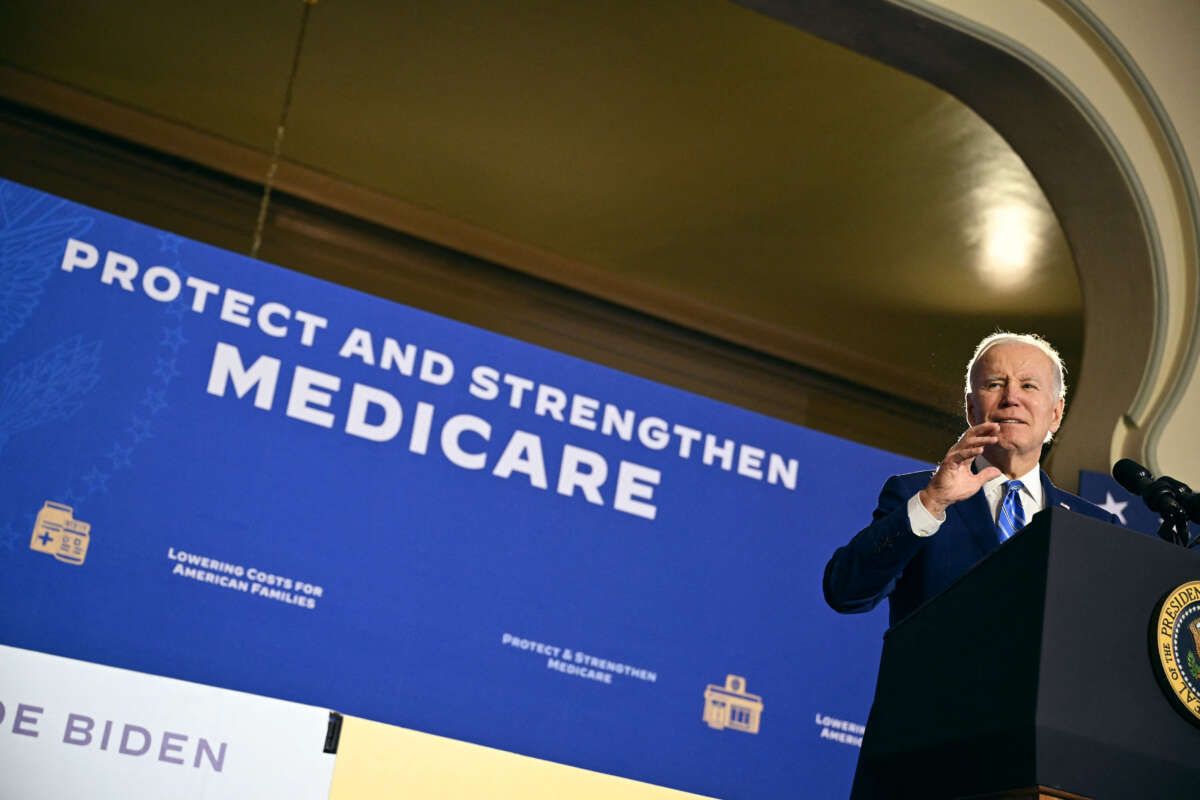On Tuesday, the Biden administration announced the first 10 medications it will require pharmaceutical companies to negotiate prices on, as part of a provision passed in the Inflation Reduction Act (IRA) last year to lower drug costs, particularly for seniors.
Of the 10 drugs listed, four are for diabetes, while the remainder are for treating heart failure, psoriasis and arthritis, blood cancer, Crohn’s disease and other ailments. The drugs that are listed account for 20 percent of Medicare Part D prescription drug costs, and could collectively save seniors in the U.S. $25 billion per year on their out-of-pocket medication purchases.
“There is no reason why Americans should be forced to pay more than any developed nation for life-saving prescriptions just to pad Big Pharma’s pockets,” President Joe Biden said in a statement announcing the 10 drugs, adding:
For many Americans, the cost of one drug is the difference between life and death, dignity and dependence, hope and fear. That is why we will continue the fight to lower healthcare costs – and we will not stop until we finish the job.
Biden also lauded the announcement in a post on X, the social media site formerly known as Twitter. “We’re ending the days of deciding between buying your medicine or putting food on the table,” he said on his presidential account.
As part of the IRA, Congress granted the executive branch the authority to force pharmaceutical manufacturers to enter into negotiations with the federal government on some drugs. Additional medications, beyond these first 10, will be announced in the coming years, The New York Times reported.
Companies face severe financial consequences for refusing to negotiate — they could be subjected to a high excise tax, up to 95 percent of their total U.S. sales, for instance. A drug maker can opt out of negotiations, but only if they withdraw all of the medications they produce from both the Medicare and Medicaid programs.
The companies have until October 1 to decide what they’ll do, although several pharmaceutical companies, along with the U.S. Chamber of Commerce, are suing the Biden administration over the new standards, with hopes that federal courts will find them unconstitutional.
In spite of the lawsuits (eight in total so far), Biden said in his statement that he is “not backing down” from the plan to force the negotiations.
Although Democrats were largely celebratory over the announcement on Tuesday, advocates for health care reform have noted that negotiations on drug costs aren’t enough to help Americans struggling to afford medication or medical bills. New prices for drugs won’t come about for some time, too, as the negotiation process won’t start until February, and new drug prices won’t be implemented until 2026.
“This is a great first step, but every day we wait to pass universal healthcare with #MedicareForAll, 186 Americans die because they can’t afford the care they need,” Melanie D’Arrigo, executive director of the Campaign for New York Health, said in a post on X.
Media that fights fascism
Truthout is funded almost entirely by readers — that’s why we can speak truth to power and cut against the mainstream narrative. But independent journalists at Truthout face mounting political repression under Trump.
We rely on your support to survive McCarthyist censorship. Please make a tax-deductible one-time or monthly donation.
